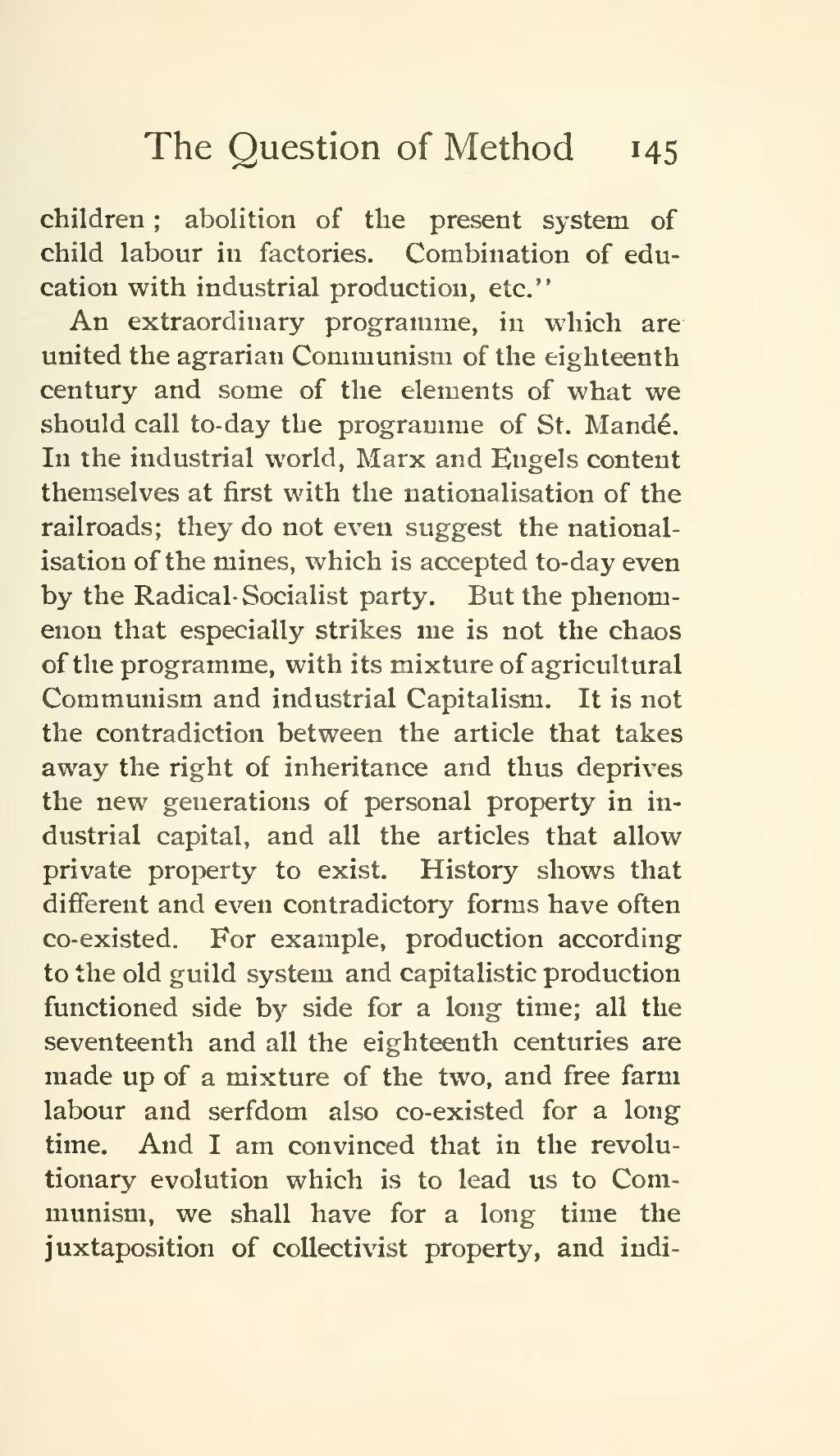children; abolition of the present system of child labour in factories. Combination of education with industrial production, etc."
An extraordinary programme, in which are united the agrarian Communism of the eighteenth century and some of the elements of what we should call to-day the programme of St. Mandé. In the industrial world, Marx and Engels content themselves at first with the nationalisation of the railroads; they do not even suggest the nationalisation of the mines, which is accepted to-day even by the Radical-Socialist party. But the phenomenon that especially strikes me is not the chaos of the programme, with its mixture of agricultural Communism and industrial Capitalism. It is not the contradiction between the article that takes away the right of inheritance and thus deprives the new generations of personal property in industrial capital, and all the articles that allow private property to exist. History shows that different and even contradictory forms have often co-existed. For example, production according to the old guild system and capitalistic production functioned side by side for a long time; all the seventeenth and all the eighteenth centuries are made up of a mixture of the two, and free farm labour and serfdom also co-existed for a long time. And I am convinced that in the revolutionary evolution which is to lead us to Communism, we shall have for a long time the juxtaposition of collectivist property, and indi-
